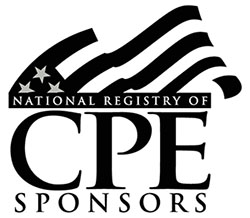
A Two-Day Classroom Seminar (CPE Approved)
Register Soon to get Early Bird Pricing.
Houston, TX - July 15 & 16, Courtyard Marriott Houston by the Galleria
This comprehensive and clearly explained seminar is for energy anf financial professionals who want to better understand today's North American natural gas industry and get quickly up-to-speed.
Learn how the production/transportation/delivery infrastructure works and how gas supply flows from wellhead to consumer. Know who the natural gas market participants are and how commercial transactions occur along each segment of the value chain. Understand and apply your knowledge of how the wholesale natural gas, transportation, and customer choice markets operate and where the new opportunities and challenges are in today's dynamic natural gas marketplace.
You will be more confident and benefit from knowing comprehensive nuts-and-bolts fundamentals and understanding regulatory strategies that will manage risk and avoid costly mistakes.
- A detailed understanding of all parts of the natural gas value chain, infrastructure components and how the natural gas industry operates across the value chain spectrum.
- What natural gas is, how it is created, the different "types" of natural gas based on various factors and sources, terminology, measurements and conversions.
- The essential of understanding how gas is used, by whom and what are demand drivers and related issues.
- What the unprecedented growth of unconventional gas supplies mean for the future of natural gas production and how it is changing infrastructures, pipeline flows and delivery options.
- The issues and dilemmas the industry faces in obtaining supply from new production technologies and understanding what "reserves" are and the various definitions and estimation methods.
- The basics of gas gathering, operations, markets and regulatory issues.
- What gas processing is, how it operates, Natural Gas Liquids, and related economic issues in today's market.
- The importance of gas quality issues and the economic, operational and regulatory concerns about gas quality and the different concerns along the value chain about gas quality and interchangeability.
- The keys parts of natural gas pipelines, how pipelines operate, who the pipeline companies are and the significant issues pipeline face in a changing market.
- The importance of storage, the different types, operations and storage development issues.
- Significant LDC physical plant-related operations, how they work, LDC economic and rate worries and regulatory trends in today's evolving markets for global LNG
- Who regulates what, where, how and why and how FERC and state utility commission policy, major Orders and regulations have evolved into today's "open access" environment.
- How natural gas delivery and storage is regulated across the value chain and how it continues to evolve in today's environment.
- Significant FERC regulatory initiatives, policies and Orders that have transformed the industry and currently policy and regulatory issues that impact how the industry operates and the information it collects and disseminates.
- Evolving State regulatory concerns, issues and the changing role of state regulators.
- Overview of regulated rate components and rate design and new rate and policies on the horizon.
- The fundamentals of Rate Proceedings and how to understand capacity issues and pipeline tariffs, transportation services, agreements and rates.
- An overview of gas transportation, pooling, nominations, confirmations, scheduling, receipt and delivery point priorities and balancing through the delivery chain.
- What flow orders, allocations, penalties, interruptions and curtailments are, and why they are important.
- The essentials of factors involved in bringing gas to market, transportation services and types, rates and rate components and tariff components.
- The changing dynamics of capacity markets with new production sources, pipelines, storage and LNG projects and the impacts on overall gas transactions, including commodity pricing, basis differentials and pipeline capacity.
- Who the key commercial value chain participants are and how they manage their respective segments and their different objectives.
- How marketers put together and process deals through each step in the "Front, Middle and Back Offices".
- Natural gas pricing concepts and mechanisms and the essentials of locational basis, commodity pricing and overview of the different types of price tools.
- The essentials of factors impacting price volatility and commodity price components.
- The major types of transaction risks, the fundamentals of price risks and risk assessment in commercial operations.
- How to apply pricing strategies, market prices, risk assessment and load requirements for gas procurement strategies and requirements.
- Day One - Supply, Infrastructures, Operations and Regulatory Issues.
- Day Two-Transportation, Choice, Tariffs and Pricing.
Chris Kralich is an energy trading consultant and PGS presenter. He has over 25 years of experience in merchant energy trading and optimizing power assets.
Chris has been a long tenured desk head working for multinational and banking companies focused on trading natural gas, power, distillates and weather derivatives.
He has a degree from Vanderbilt University in economics and political science as well as an MBA from the University of Connecticut. Newly located to Amelia Island, Florida.
This two-day seminar will be held at the hotels listed below or can be conducted on-site at your facilities. The seminar will start promptly at 8:00 AM and will finish at 4:30 PM on the first day. On the second day, the seminar will resume at 8:00 AM and will finish at 3:00 PM. The program includes continental breakfast, lunch, and coffee breaks on the first day. On the second day a continental breakfast, snack or lunch and coffee breaks are included. Attendees also receive a professionally produced seminar manual that can serve as a valuable office reference. Dress is business casual for all seminars.
Cutoff date for discount: February 26, 2025
Cutoff date for discount: June 25, 2025
- Additional attendees and government employees receive a 10% discount.
-
Register 4 or more attendees and receive 20% Off.
Special pricing is available for groups of 5 or more.
If you want attendees to pay with separate credit cards or have other questions, please call (440) 853-1038 for assistance.
This live group seminar is eligible for 13.5 CPE credits. Be aware that state boards of accountancy have final authority on the acceptance of individual courses for CPE credit. As of January 1, 2002, sponsored learning activities are measured by program length, with one 50-minute period equal to one CPE credit. One-half CPE credit increments (equal to 25 minutes) are permitted after the first credit has been earned in a given learning activity. You may want to verify that the state board from which your participants will be receiving credit accept one-half credits.


The Global Association of Risk Professionals (GARP) is a not-for-profit membership association dedicated to preparing professionals and organizations for making better-informed risk decisions. GARP's membership represents more than 150,000 risk management practitioners and researchers at academic institutions, banks, corporations, government agencies, and investment management firms in 195 countries and territories. GARP administers the Financial Risk Manager (FRM) and Energy Risk Professional (ERP) Exams – certifications recognized by risk professionals worldwide. Visit www.garp.org/cpd.
Professionals from natural gas and electric utilities, energy producers, pipelines, municipals, energy marketers, banks, government regulators and industrial companies; energy and electric power executives; new hires; attorneys; government regulators; traders & trading support staff; marketing, sales, purchasing & risk management personnel; accountants & auditors; plant operators, engineers, corporate planners and anyone needing a strong foundation in the U. S. and Canadian natural gas business.
This fundamental level group live seminar has no prerequisites. No advance preparation is required before the seminar.
PGS seminars are known for their clear explanations and in-depth content. Register for a PGS class today, and join the over 10,000 energy professionals who have already attended one of PGS's proven programs.
